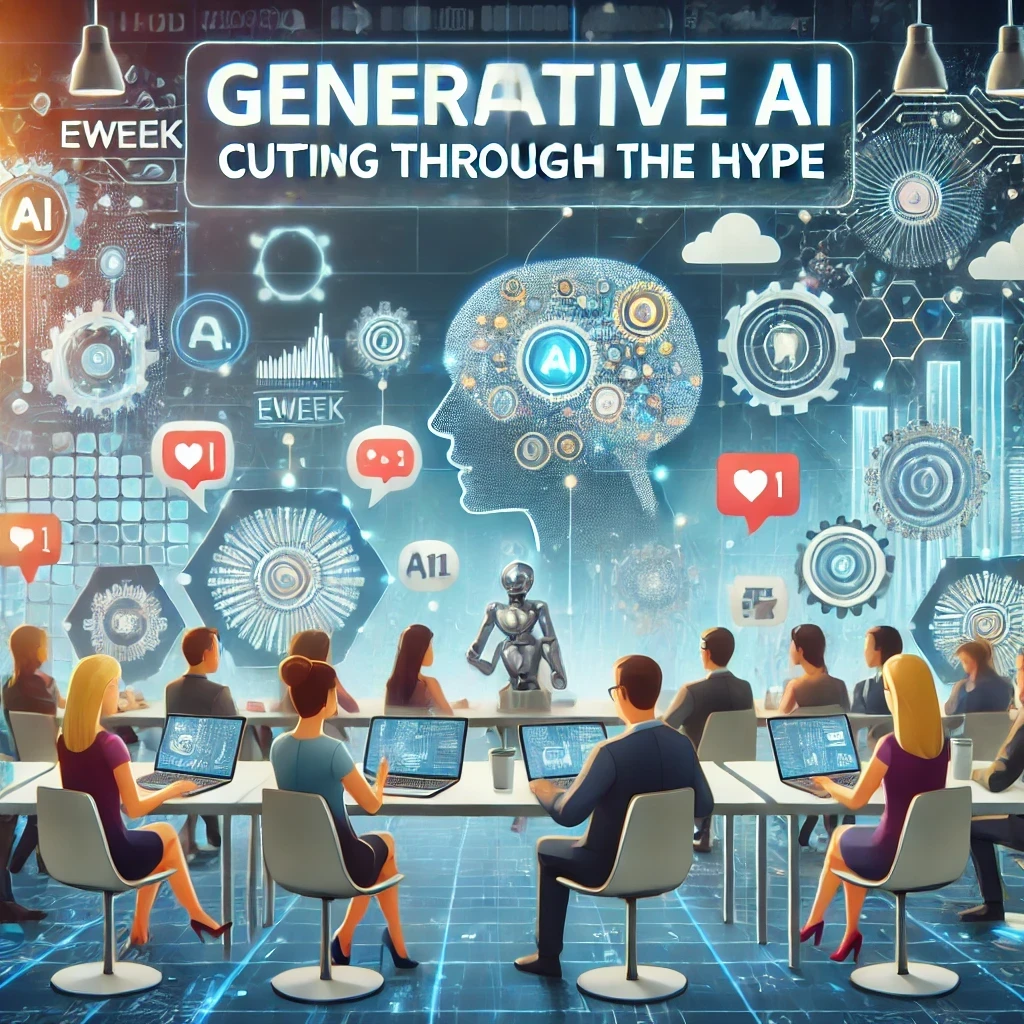
Generative AI: Cutting Through the Hype—Insights from eWeek TweetChat
The buzz around Generative AI has reached fever pitch, with discussions spanning multiple industries about its potential to revolutionize businesses and daily life. Amid the whirlwind of opinions, eWeek’s recent TweetChat brings clarity by hosting industry experts to weigh in on what’s hype and what’s in practical fruition. This article distills the key takeaways from the #eWeekChat.
Understanding Generative AI
Generative AI refers to algorithms and systems capable of creating new content, whether it’s text, images, or even music, that mimics human creativity. The technology leverages large datasets and pattern recognition to produce something original yet indistinguishably complex from human creations.
Applications Span Across Industries
The potential applications of Generative AI spread across diverse sectors. For example, the retail industry can use AI-generated personalized content to enhance customer experiences, while healthcare can benefit from AI-generated diagnostics based on extensive medical data patterns. However, with such promising applications also come significant challenges.
The Hype: Too Much, Too Soon?
While Generative AI demonstrates impressive capabilities, there are notable concerns about overhyping this technology. During the TweetChat, experts underscored the importance of setting realistic expectations, emphasizing that the technology is not yet a magic bullet for all problems.
Expecting Immediate ROI
One critical point experts raised is the unrealistic expectation of immediate Return on Investment (ROI). Implementing Generative AI solutions is a complex and often costly endeavor, requiring time for development, integration, and optimization. Instant success stories are rare, and companies should be prepared for a diligent and iterative process.
Ethical and Privacy Concerns
Another pivotal point discussed was the ethical considerations surrounding Generative AI. With great power comes great responsibility. There are significant risks regarding data privacy, potential biases in AI outputs, and the ethical implications of AI-generated content that varies in quality and intent.
Real-world Case Studies
Despite the caution around overhyping, there are indeed compelling real-world applications of Generative AI that showcase its transformative potential.
Content Creation
In the realm of digital marketing, companies are leveraging Generative AI to create vast amounts of content swiftly. From generating product descriptions to social media posts, the technology allows for scaling content creation efforts without a proportional increase in manual labor.
Medical Research
Another noteworthy application is in medical research. Generative AI helps scientists simulate complex biological processes and predict molecular interactions with high accuracy. These simulations expedite drug discovery and enable personalized treatments.
Key Takeaways from the eWeek TweetChat
The eWeek TweetChat provided a balanced view of Generative AI, offering both its promise and caveats. Here are some crucial insights to consider:
Balance Hype with Reality
While it’s exciting to anticipate the potential of Generative AI, it’s equally important to be grounded in reality. Expectations should be managed appropriately, especially concerning timelines and ROI.
Invest in Expertise
Companies looking to adopt Generative AI should invest in skilled personnel who understand the complexities of this technology. Only through expertise can the true potential of Generative AI be realized effectively and ethically.
Future Prospects
Looking ahead, the trajectory of Generative AI appears promising but tempered with a need for cautious optimism. Continued advancements in AI algorithms, coupled with better data handling and ethical frameworks, will likely determine how quickly and effectively this technology permeates various industries.
The Role of Regulation
Regulation will play a pivotal role in shaping the future of Generative AI. Policymakers and tech leaders must work together to establish guidelines that foster innovation while ensuring safety, privacy, and fairness.
Continuous Learning and Adaptation
As with any evolving technology, continuous learning and adaptation are crucial. Organizations must remain agile, constantly updating their practices and technologies to align with the latest advancements and ethical standards.
Conclusion
Generative AI holds transformative potential across various sectors, promising innovations in content creation, medical research, and beyond. However, it is imperative to navigate the hype with a balanced perspective, understanding that while the technology is indeed groundbreaking, it is accompanied by significant challenges and responsibilities. Insightful discussions, such as those facilitated by eWeek TweetChat, are vital in charting a comprehensive and pragmatic path forward.